5 Margaret Brent honorees helped level the playing field for women lawyers
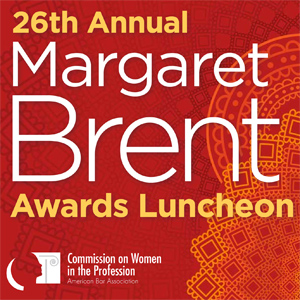
One of a few themes that threaded through acceptance speeches by the five award recipients at the Margaret Brent Women Lawyers of Achievement Award luncheon at the ABA Annual Meeting in San Francisco concerned men, albeit small numbers of them, who worked to help women lawyers succeed.
When—not so long ago—there were few women lawyers in high positions in government, law firms and elsewhere, it meant there were few women role models, so the help from men was very much needed. But even as more women have risen to success and prominence in the law, it is imperative for men to continue helping to narrow the still-big chasm of inequality in the workplace and the profession
“We need many more men to step up as advocates and sponsors for women lawyers,” award recipient Roberta D. “Bobbi” Liebenberg said in her acceptance speech at the 26th annual awards luncheon, sponsored by the ABA’s Commission on Women in the Profession. Liebenberg told her own story, which illustrates the additional challenges facing women with ambition in the law.
As a 2L at Catholic University Law School in Washington, D.C., in 1972, she had the first of her three children. Her husband was living more than 100 miles away for his surgical residency in Richmond, Virginia.
“Each weekend, I would travel back and forth between Washington and Richmond, my daughter Julie in a snuggly, my hands full with a diaper bag, suitcase and books,” Liebenberg said. “Trust me, there is nothing like riding a Greyhound bus four hours roundtrip with a baby to teach you grit and tenacity.”
After clerking at the 4th U.S. Circuit Court of Appeals, Liebenberg approached law firms for a job. One firm partner who interviewed her asked questions typical of that day: What are your childcare arrangements? How many more children to you intend to have? He added one that tested her even more: Would you cry if a judge yelled at you?
Liebenberg said she paused and then said, “Would it help the client? Because I can do that.”
The same problems remain, but typically play out with more subtlety.
At every expected applause line, Liebenberg had a home-field decibel advantage with the luncheon crowd because she has long been a fixture in ABA leadership, having twice chaired the Commission on Women in the Profession and having been the first chair of the ABA’s Task Force on Gender Equity.
The awards recognize achievement by women who have gone against the odds in a male-dominated profession and business world and not only succeeded but brought change in ways to help others who follow them. In the 17th century, Margaret Brent became the first woman to practice law in a court in the colonies that would become the United States.
“Simply, put, the pace of progress for the women in the profession has been far too slow, and we have been far too patient in accepting the status quo,” Liebenberg said. So women still are expected to be assertive but not unduly aggressive; be competent but not be perceived as bragging; and to speak up at meetings, but not too much.
“In other words, women always face the Goldilocks dilemma of having to act just right,” she said. Law firms must begin using meaningful metrics and concrete benchmarks to ensure fairness and equality for women lawyers, and hold firm leaders accountable if targets aren’t met.
The loudest applause came when Liebenberg said this is “the first time in our country’s history that the presidential nominee of a major party is not only a woman, but a woman lawyer whose real claim to fame is that she was the first chair of the ABA’s Commission on Women in the Profession.” She added that for the first time the slate of ABA officers about to be elected is all women: president, president-elect, treasurer and chair of the House of Delegates.
The five recipients of the 2016 Margaret Brent Awards are:
GINGER EHN LEW
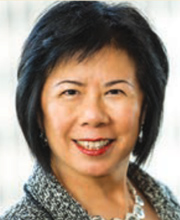
Ginger Ehn Lew has woven a certain thread through her more than 40-year-career as a lawyer in government and private practice and in finance and nonprofit work—she has always reached back to help other women and people of color advance, and she has pushed efforts to open more doors for them. Early on, she often found herself the only such person in the room.
For example, when Lew became deputy administrator and COO of the U.S. Small Business Administration in 1996, she increased the number of loans to women and minorities while also pushing to open business procurement opportunities for them. And before that, as general counsel for the U.S. Department of Commerce in the Clinton administration, she worked to get women at the table in trade negotiations and in management and policy roles.
Though a native of the San Francisco Bay area, Lew learned English as a second language by watching television as a child. Her parents were immigrants and her mother spoke only Chinese, so at a young age Lew became her mother’s translator. It was her first go at advocating for others. She would one day work on U.S. efforts in getting 21 nations to adopt policies for the advancement of women in business and in the workplace.
As a member of the transition teams for President Bill Clinton in 1993 and President Barack Obama in 2008, Lew helped dozens of women lawyers and lawyers of color get through the political appointments process.
Over the years, Lew has moved back and forth from significant positions in government and public service to private sector jobs in law, nonprofits, investment and nonprofit organizations. For example, as an assistant city attorney in Los Angeles, she drafted filings with the U.S. Environmental Protection Agency to ban the use of chlorofluorocarbons in one of the earliest federal proceedings under the Clean Air Act. Lew currently is managing director and general counsel of Cube Hydro Partners, a clean energy company based in Bethesda, Maryland.
ROBERTA D. ‘BOBBI’ LIEBENBERG
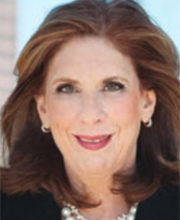
Roberta D. “Bobbi” Liebenberg’s first job out of college in 1970 was teaching inner-city Detroit high school students, after which she moved on to do the same in rural Maryland. She saw the same problem in both situations: economic inequality in education funding. She decided to work for social change and chose a career in the law as the best route.
Liebenberg became the first woman notes editor of the law review in Washington, D.C., even while caring for her first baby and frequently driving to Richmond, Virginia, where her husband was in a medical residency. She shone well enough to get a clerkship on the 4th U.S. Circuit Court of Appeals.
When they moved to Philadelphia, Liebenberg practiced antitrust law at a big firm, when women in that niche were few. She left a partnership there to start the first woman-owned firm in the city and worked on class actions and commercial litigation. Over the years, Liebenberg has worked a number of large, complex cases. She was co-lead counsel for the plaintiff in In re Urethanez Antitrust Litigation and was one of five trial counsel who got a $1.06 billion judgment against Dow Chemical Company—the largest-ever price-fixing judgment.
All the while, Liebenberg raised three children and played a number of prominent roles in advancing the presence of women in the legal profession. She twice has been chair of the ABA’s Commission on Women in the Profession and was the first chair of the ABA’s Task Force on Gender Equity. The Pennsylvania Supreme Court appointed her as co-chair of the Interbranch Commission for Gender, Racial and Ethnic Fairness, and she chairs DirectWomen, which works to get more women lawyers on corporate boards.
Liebenberg co-authored “First Chairs at Trial: More Women Need Seats at the Table” (PDF), an empirical study of the under-representation of women as lead trial lawyers, published by the ABA Commission on Women in the Profession and the American Bar Foundation.
NANCY E. O’MALLEY
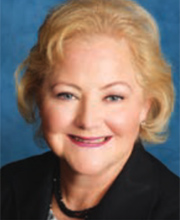
Nancy E. O’Malley hasn’t just put criminals behind bars, she has made things easier for victims and sought to fight the social and economic causes of crime. She worked her way up as a line prosecutor in the office of the District Attorney of Alameda County, California, beginning in 1984. Fifteen years later, she was named chief assistant district attorney, before being appointed in 2009 as the county’s first woman to hold the position of the top prosecutor.
O’Malley has been a national leader in combating violence against women; sexual assault; and human trafficking. In 2005, she established the Alameda County Family Justice Center, where 30 on-site and 50 off-site agencies offer help for crime victims.
In 2009, O’Malley launched the nation’s first-of-a-kind and now widely used model for battling human trafficking: Human Exploitation and Trafficking Watch (H.E.A.T. Watch), a guide for prosecutors, law enforcement, service providers and communities. She was an early adopter with sexual-assault response teams to assist victims in the investigation and aftermath of trauma.
She targeted the national backlog in processing rape kits and was instrumental in getting the issue on the radars of Congress, the White House and the U.S. Justice Department. Vice President Joe Biden invited O’Malley to attend when he announced $86 million in federal funding in the Sexual Assault Kit Initiative for law enforcement agencies to have sexual-assault evidence processed.
O’Malley is a former president of the California Women Lawyers and during her tenure in 2009-10 she promoted the No Glass Ceiling Initiative of the Bar Association of San Francisco, and also chaired the CWL Foundation, launching the Lessons from Our Mothers video series.
JUDGE JUDITH W. ROGERS
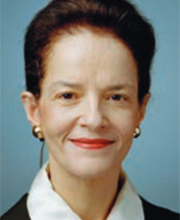
Before Judith W. Rogers became a judge, she was instrumental in creating a judicial system for the District of Columbia.
One of just 15 women in her Harvard Law School class of more than 500, and African-American, she became the third woman to handle criminal matters as an assistant U.S. attorney in Washington, D.C. She was then was named to a Justice Department team tasked with devising and helping guide through Congress a state-court type system to replace the federal one in the District. Under the D.C. Court Reform and Criminal Procedure Act of 1970, a trial and appellate court system was phased in over three years.
Thirteen years later, she would be nominated by President Ronald Reagan and appointed as a judge on the District of Columbia Court of Appeals. Four years later, she was named the court’s chief judge. Then in 1994, she became the fourth woman and first African-American woman on the U.S. Court of Appeals for the D.C. Circuit, which is known as the second-highest court in the land because it handles so many significant cases involving the federal government and its agencies.
Besides being a role model for women, particularly African-American women, Rogers hired clerks with an eye to diversity, helping launch careers for lawyers of diverse gender, race, ethnicity and sexual orientation.
In 1979, when Rogers became the corporation counsel of D.C.—the first woman in that position, which is the equivalent of a state attorney general—she ensured diversity in hiring to bring more women and minority lawyers into the office and into management positions.
Untold numbers of women and minority lawyers over the years advanced with her help and guidance.
JUDITH A. SCOTT
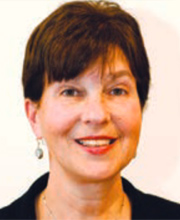
Judith A. Scott came out law school during the fervor of social activism in the mid-1970s and became a union lawyer—it was a male-dominated field. She would go on to be the first and only woman to work as general counsel at two major international labor unions—the International Brotherhood of Teamsters and, for almost 20 years, the Service Employees International Union.
Early in her career, Scott worked on women’s issues in the auto industry, such as pregnancy discrimination, child care, family leave, reproductive health and sexual harassment. Her work as an in-house lawyer with the United Auto Workers union from 1978-82 included implementation of the Pregnancy Discrimination Act of 1979 in the auto industry.
Scott’s work on progressive issues for unions naturally carried over to other efforts: She has been on the boards of directors of the Alliance for Justice and the American Constitution Society, and co-chaired the ABA’s International Labor & Employment Committee. She helped develop a network of women in the labor movement and in progressive politics.
At the SEIU, Scott was general counsel during the years that the union was involved in significant cases before the U.S. Supreme Court, including the Affordable Care Act; marriage equality; employee union rights; and reproductive health care. The 2 million-plus-member union represents service industry workers such as those in health care and public employees—and more than half its members are women and people of color.
Scott also worked as an in-house lawyer at the American Federation of State, County and Municipal Employees and the United Mine Workers of America.
Follow along with our full coverage of the 2016 ABA Annual Meeting.



